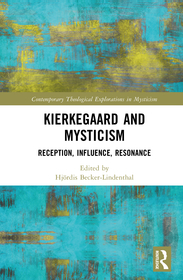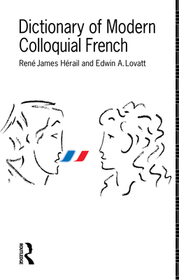
Kierkegaard and Mysticism
Reception, Influence, Resonance
Sorozatcím: Contemporary Theological Explorations in Mysticism;
-
20% KEDVEZMÉNY?
- A kedvezmény csak az 'Értesítés a kedvenc témákról' hírlevelünk címzettjeinek rendeléseire érvényes.
- Kiadói listaár GBP 145.00
-
69 273 Ft (65 975 Ft + 5% áfa)
Az ár azért becsült, mert a rendelés pillanatában nem lehet pontosan tudni, hogy a beérkezéskor milyen lesz a forint árfolyama az adott termék eredeti devizájához képest. Ha a forint romlana, kissé többet, ha javulna, kissé kevesebbet kell majd fizetnie.
- Kedvezmény(ek) 20% (cc. 13 855 Ft off)
- Kedvezményes ár 55 419 Ft (52 780 Ft + 5% áfa)
Iratkozzon fel most és részesüljön kedvezőbb árainkból!
Feliratkozom
69 273 Ft

Beszerezhetőség
Becsült beszerzési idő: A Prosperónál jelenleg nincsen raktáron, de a kiadónál igen. Beszerzés kb. 3-5 hét..
A Prosperónál jelenleg nincsen raktáron.
Why don't you give exact delivery time?
A beszerzés időigényét az eddigi tapasztalatokra alapozva adjuk meg. Azért becsült, mert a terméket külföldről hozzuk be, így a kiadó kiszolgálásának pillanatnyi gyorsaságától is függ. A megadottnál gyorsabb és lassabb szállítás is elképzelhető, de mindent megteszünk, hogy Ön a lehető leghamarabb jusson hozzá a termékhez.
A termék adatai:
- Kiadás sorszáma 1
- Kiadó Routledge
- Megjelenés dátuma 2025. szeptember 16.
- ISBN 9781032588681
- Kötéstípus Keménykötés
- Terjedelem264 oldal
- Méret 234x156 mm
- Súly 650 g
- Nyelv angol 696
Kategóriák
Rövid leírás:
This book brings together scholars who show that reading Søren Kierkegaard from the perspective of mysticism not only sheds new light on the Dane’s thought but also offers a fresh approach to mysticism as such, considering its relevance for existential questions, ethics, inter-faith dialogues, and socio-political criticism.
TöbbHosszú leírás:
Kierkegaard and Mysticism brings together scholars who show that reading Søren Kierkegaard from the perspective of mysticism not only sheds new light on the Dane’s thought but also offers a fresh approach to mysticism as such, considering its relevance for existential questions, ethics, inter-faith dialogues, and socio-political criticism.
The three sections focus on:
- reception history, considering the mystical writers who, even when mediated through secondary sources, were most formative for Kierkegaard’s thought;
- mystical concepts such as silence, unio mystica and the relation of the contemplative and active life in various religious traditions;
- Kierkegaard’s relevance for twentieth-century mystical writers and contemporary spirituality.
Whereas previous scholarship has approached Kierkegaard’s relation to mysticism mainly under a negative paradigm, this volume contributes to a greater understanding of the mystical dimensions of his thought. It will be of interest not only to Kierkegaard scholars but also to theologians and philosophers working on mysticism and intellectual history.
TöbbTartalomjegyzék:
Foreword: The Master of Irony and the Mystical Canon Kierkegaard and Mysticism? Introduction Part 1: Kierkegaard and the Mystical Tradition 1. Augustine, Kierkegaard, and Kenotic Existence 2. Agency and Contemplation: Neptic Themes in Kierkegaard 3. Unio Mystica and the Infinite Difference Between God and Human Being: Kierkegaard and Tauler 4. Justification and Sanctification: Luther, Arndt, and Kierkegaard’s Inheritance of Theologia Deutsch 5. Purity of Heart and the Pure Love of God: Kierkegaard and Fénelon 6. Modern Devotion: Thomas à Kempis, Søren Kierkegaard, and the Question of the Unio Mystica 7. “Upbuilding Religious Popular-Philosophy”: Martensen’s Eckhart and Kierkegaard’s Defense of Mysticism Part 2: Approaching Mysticism With Kierkegaard 8. The Mystical Horizon: The Temptation of Mysticism and the Transfiguration of Unio Mystica 9. Re-thinking Spirituality with Kierkegaard: the First Schleswig War and the Turn to Imitatio Christi 10. Contemplative Withdrawal and Ethical Life: A Kierkegaardian Critique 11. Muslim Sufism and Kierkegaard’s Mysticism: Returning to the Finite World 12. Kierkegaard and the Three Characteristics of Existence in Buddhism Part 3: Mysticism After Kierkegaard 13. Contemporaneity with Christ: Cornelio Fabro’s Kierkegaardian Approach to the Mystical Writings of St. Gemma Galgani 14. Antigone Again? Reading Kierkegaard and Simone Weil 15. Against the Hierarchization of Religion and Ethics: The Opposition of Hasidism and Kierkegaard in Martin Buber 16. The Stranger Within: Kierkegaard, Mysticism, and the Unconscious.
Több





